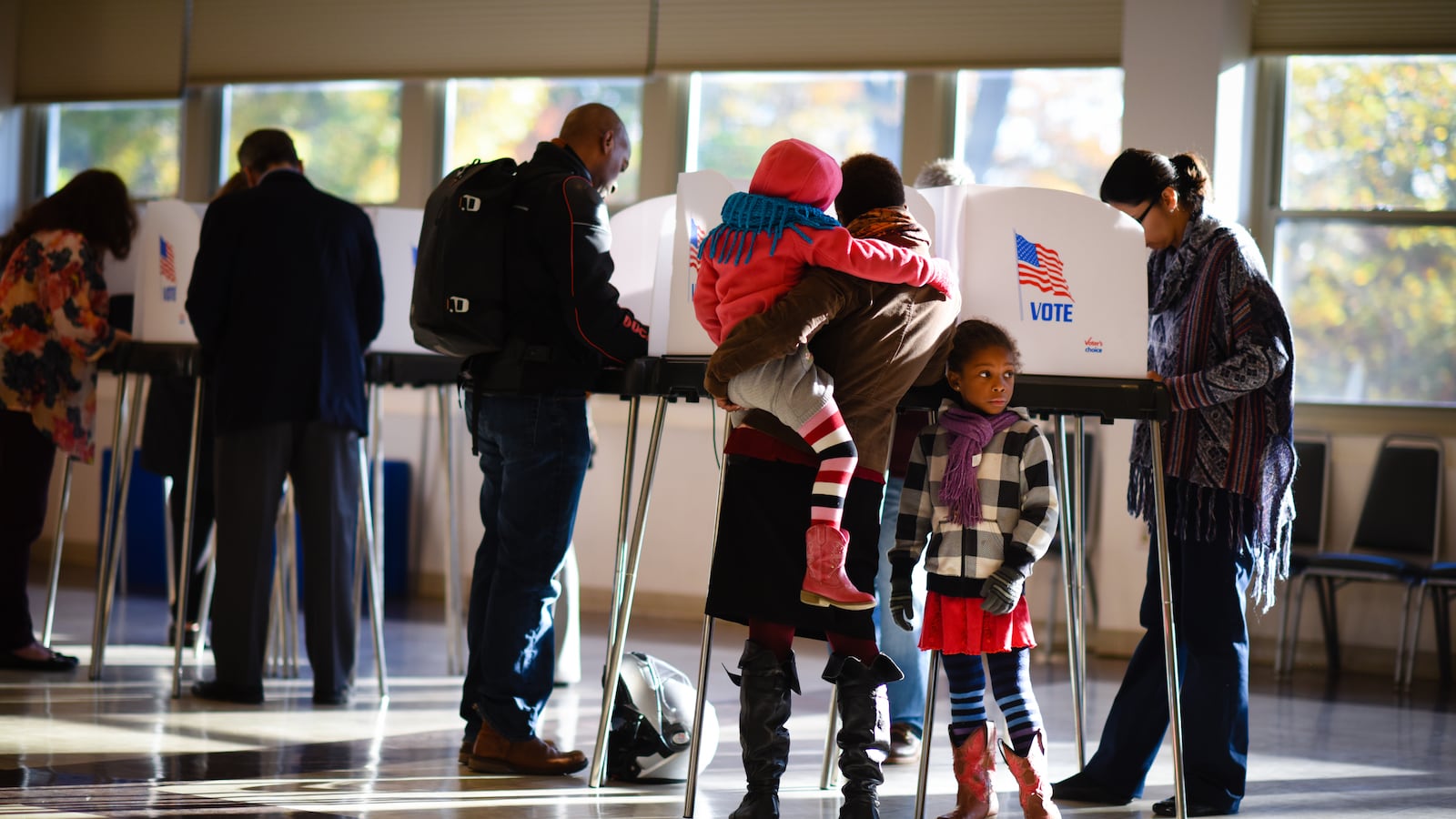I’m not proud of the kind of voter I used to be. I used to think of my local polling place like a fast food restaurant, while simultaneously fearing it would be like a DMV. I didn’t spend much time thinking about why I was routed to different tables, or the volunteers who spent all day in that gymnasium, or what happened to my ballot after I slid it into a box or a machine. But I’d grab a little “I Voted” sticker on my way out and place it on my shirt like a 10-year-old who’d aced a spelling test.
Maybe I hadn’t actually earned that badge of honor. Sure, in the literal sense, I voted. And at the end of the night, I watched the results and reacted predictably to outcomes that did or didn’t go my way. But I had no respect or understanding for the elaborate system that ensured I got to participate.
Sound familiar?
In 2020, I voted by mail in Washington, D.C., for the first time because the Board of Elections made sure to send me a ballot. A few days after the election, I got a text message saying that my signatures didn’t match. It gave me a chance to send in extra identification to “cure” my ballot. Wow, I thought, some election worker really made an effort to make sure my vote got counted.
And that’s the thing about elections. We believe that voting is the core activity of democracy, but most of us invest so little in the action itself, taking it for granted. This out-of-sight-out-of-mind mentality is not surprising, especially for a massive apparatus like elections. Easier to be a passive consumer: “I voted.” There, done.

That’s changing. Americans are polarized over the act of voting just as we’ve become polarized over so many other issues that don’t need to be partisan but end up that way. As with other political divisions, in their attempt to engage more deeply, some people seek the truth, and others seek something else they mistake for the truth.
American elections are ripe for misinformation because they are complicated and confusing, especially in the past 10 years, as the rules have rapidly changed nationwide and as new voting methods like early voting and mail voting have spread to more states. This is a big reason why Trump’s big lie of a rigged election caught on so feverishly.
Except that the claim by Trump and his allies is not just one big lie. It’s lots of little lies: the myth of hacked voting machines, of cheating election workers, of mail ballot fraud, of forensic audits, of dead people voting. When this is what people hear about elections, it’s not surprising that only 20 percent of Americans trust our electoral system. You can’t trust what you don’t understand.
The public’s need for the nuanced truth about elections is Votebeat’s call to action. We believe democracy is stronger when voters have the information to engage with elections and trust the results — simply that voting is good, no matter who you vote for.
Our mission is to report the facts about how the system works and about the safeguards that protect the integrity of the vote. And we aim to produce journalism that strengthens elections by identifying real problems and driving the debate toward solutions.
We landed on this mission after experimenting with Votebeat as a pop-up newsroom during the 2020 election, when we hired 15 reporters in eight states for a three-month project focused on local election administration and voting. Through the nearly 200 articles we published with local news partners, we realized a permanent need for a brand of election journalism that avoids campaign reporting and horse-race coverage in favor of stories about the voting experience through the voter’s eyes — not who they voted for or why, but did the system work for them, was it fair.
While U.S. elections are by and large secure, they are not perfect. Inequalities in voting access remain, especially for voters of color, economically disadvantaged Americans, non-English speakers, and disabled voters. Even without partisan agendas interfering, elections can be plagued by dysfunction and short-sighted policy that leaves voters frustrated.
The system certainly doesn’t feel fair to voters like Andres Candelaria, a voter outside of El Paso whose ballot was rejected in the March primary for an ID number error. Or for Spanish-speaking voters in Berks County, Penn., who received translated election materials last year with the wrong date for the election. Or mail-ballot voters in Arizona who are being removed from a permanent early voting list that is no longer permanent.
We want to cover these problems at the local level because that’s where elections are run in America’s decentralized system, with its 10,000-plus election jurisdictions in county, city, and township governments, each running their election differently.
We chose Arizona, Michigan, Pennsylvania, and Texas as our first states to cover because we see some of the greatest threats looming over the next elections there: restrictive voting laws, election worker attrition, a far-right movement to take over positions overseeing elections, and legal strategizing to subvert legitimate election results. (We keep a list of other states meeting that criteria, including Wisconsin, Georgia, North Carolina, and Florida — places we’re eyeing for expansion.) We are launching with formal partnerships with Bridge Michigan, Spotlight PA, and the Texas Tribune — three nonprofit news organizations that were among Votebeat’s original partners during its 2020 project phase.
Votebeat reports on these stories largely by drawing on the valuable perspective of election administrators, who do this work every day and perhaps best understand the challenges in their work and the potential solutions. We’ve found that most of them are apolitical government workers who largely see themselves as public servants.
And we approach the topic as subject matter experts on election administration. The start of our education is a two-week training program designed and taught by editorial director Jessica Huseman, one of the nation’s foremost reporters on this beat. Among other lessons, our journalists learned the esoteric facts about the Voluntary Voting System Guidelines, the reforms embedded in the Help America Vote Act, the market dominance of the three major voting machine companies, and the evolving state of election cybersecurity, each unit featuring expert guest speakers. This is why Votebeat journalists are able to get into the factual nuance of this subject and see through the misinformation and politicized claims about elections.
That expertise gives us the authority to connect with and earn credibility from our readers. Our audiences are the local stakeholders in elections who either have a role in conducting them, setting the rules for them, advocating for improving them, or participating in them. Votebeat reporters are doing listening tours with these stakeholders to hear about their biggest needs and concerns. Our journalism will be urgent both for state lawmakers who are rewriting the election laws and for voters who want to understand how their vote is counted — and whether there’s a better way.
This is why Votebeat’s key indicator of success is our journalistic impact: stories that lead to action and drive change. Instead of chasing virality in service of ad revenue, we can go deep and serve our communities. We learned how to do this from our founders at Chalkbeat, one of the country’s strongest nonprofit local news organizations.
We’re proud of the impact we’ve achieved with our early Votebeat journalism, such as when we reported on a problem that election administrators saw coming in Potter County, Texas, when Republicans there wanted to run their own primary election with risks to election security and voter confusion. Two weeks later, the GOP chair who orchestrated the plan backed down under the pressure generated by our reporting.
If our journalism continues fighting threats to elections and highlighting paths to progress, we stand to play a key role in strengthening democracy. Votebeat is ready.
Chad Lorenz is Votebeat’s editor-in-chief and is based in Denver. Contact Chad at clorenz@votebeat.org.


